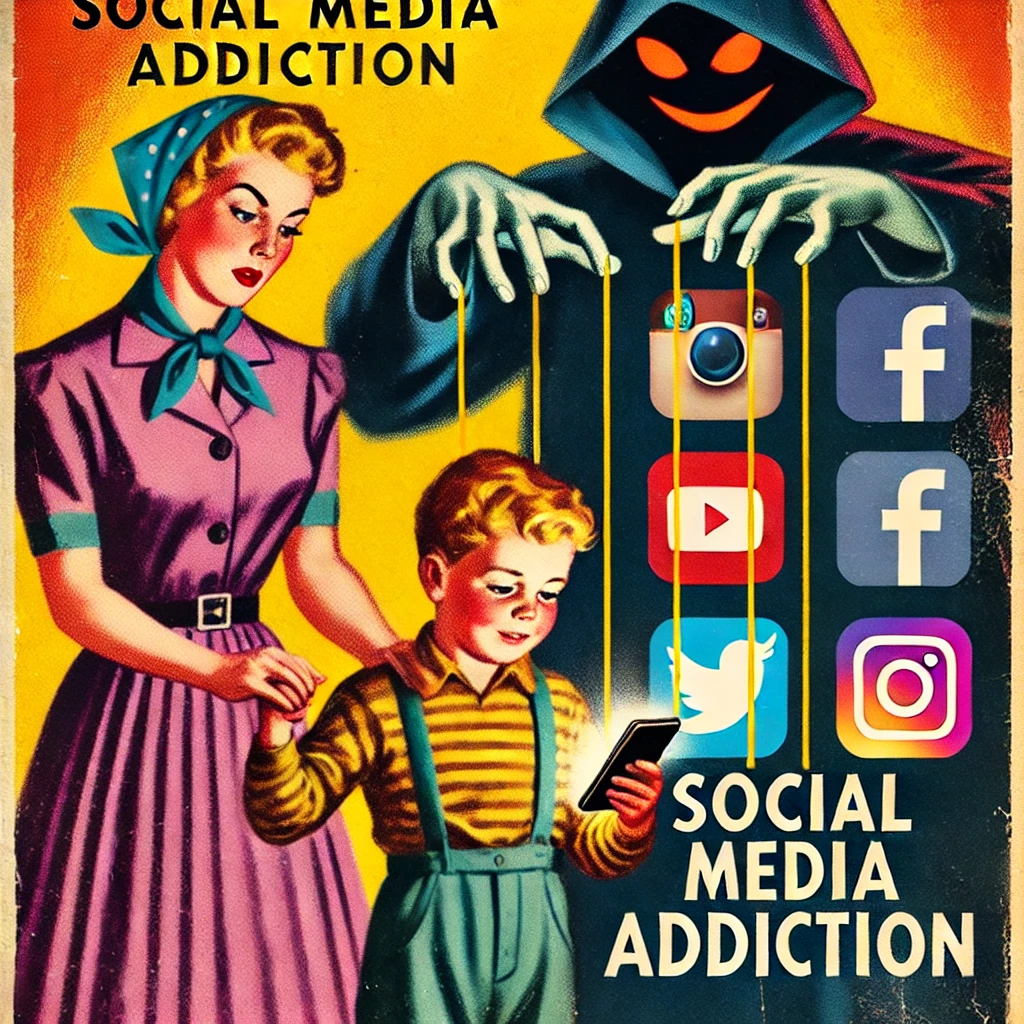
By Asha Lang
When it comes to shielding the impressionable from the hypnotic glow of social media, California and Australia are playing vastly different tunes. Australia, ever the disciplinarian, has slammed the door shut with an outright ban for teens—a bold move, critics say, that’s as subtle as a kangaroo in a ballroom.
As Ellis Marlowe noted in First they came for the Likes, Australia's well-intentioned move, cloaked in the guise of protection, may inadvertently silence the very voices it seeks to safeguard. That's because marginalised youth—queer kids, rural children, indigenous youth for instance—rely on social media as a lifeline to communities that affirm their identities and experiences. By severing this digital connection, Australia's policy risks deepening the isolation of vulnerable children, favoring the illusion of safety over the reality of equity.
California, on the other hand, has chosen precision over prohibition with its Protecting Our Kids from Social Media Addiction Act, slicing into the algorithms that ensnare young minds while handing parents the reins. By fixing its gaze on the mechanics of digital addiction, rather than the users themselves, California might just have found a way to keep its kids scrolling with purpose, not peril.
Tech lobbyists, with all the charm of a door-to-door salesman, tried to topple SB 976, but a judge on New Year’s Eve sent them packing faster than a party guest who overstayed their welcome.
Since they first slithered into our screens, the digital Goliaths of Silicon Valley had carte blanche to woo, ensnare, and keep users scrolling well past their bedtimes. But California, known for its progressive zeal, has taken a dramatic page from New York’s playbook and added a few spicy footnotes of its own. With the passing of the Protecting Our Kids from Social Media Addiction Act, the state has served notice to social media platforms: the age of the algorithmic free-for-all is over.
A Tale of Two Coasts (and a Continent)
The new law, which mandates parental consent for minors to access "addictive feeds" and restricts notifications during sleep and school hours, builds on the New York Stop Addictive Social Media Algorithms Act passed earlier this year. Both laws share a common DNA: the idea that platform-driven compulsion isn’t just annoying—it’s downright dangerous, especially for kids.
California’s law goes further, turning the screws on platform operators who use "addictive feeds"—those personalized rabbit holes engineered to make you forget what daylight looks like. By 2027, these operators must ensure that minors aren’t exposed to such feeds without parental consent, and they must offer tools for parents to restrict use.
The law also requires annual disclosures, enforcing transparency on how platforms interact with minors. Failing to toe the line could mean facing the wrath of California’s Attorney General.
According to Techcrunch, under SB 976 social media platforms mustn’t offer their glittering, addictive feeds to minors without a verifiable nod from parents—a feed being any algorithmic siren designed to keep young eyes glued to the glow.
Second, platforms are forbidden to buzz or ding during ungodly hours (midnight to 6 a.m.) or sacred school time (weekdays from 8 a.m. to 3 p.m., September through May). Unless, of course, parental consent is given—because who needs uninterrupted learning when you can check notifications?
Third, minors’ accounts will be locked down tighter than a dowager’s diary, set to private by default, sparing them unwanted suitors and suspect algorithms alike.
And lastly, a treasure chest of parental controls allows the grown-ups to limit access to those pesky feeds, silence the sirens of notifications, and dim the glitter of likes and comments. It’s Big Brother meets Big Mama, ensuring the little darlings grow up safe from digital debauchery—or at least the worst of it.
California’s move is more than a local quirk. It’s a part of an escalating global conversation about Big Tech's unchecked influence over our mental health and habits. What started as outrage over data breaches and misinformation has morphed into a fight for mental well-being.
Predictably, the tech industry isn’t thrilled. Critics argue these laws risk stifling innovation or creating a patchwork of regulations that are as tangled as the cables under your desk. But perhaps innovation could focus less on keeping users glued to screens and more on empowering them to look away.
With these laws, the tide may be turning. For once, perhaps, it’s not the algorithms steering the conversation—it’s the people.
(Sources: California Senate Bill 976 Protecting Our Kids from Social Media Addiction Act, Techcrunch. Australian Privacy Act)
